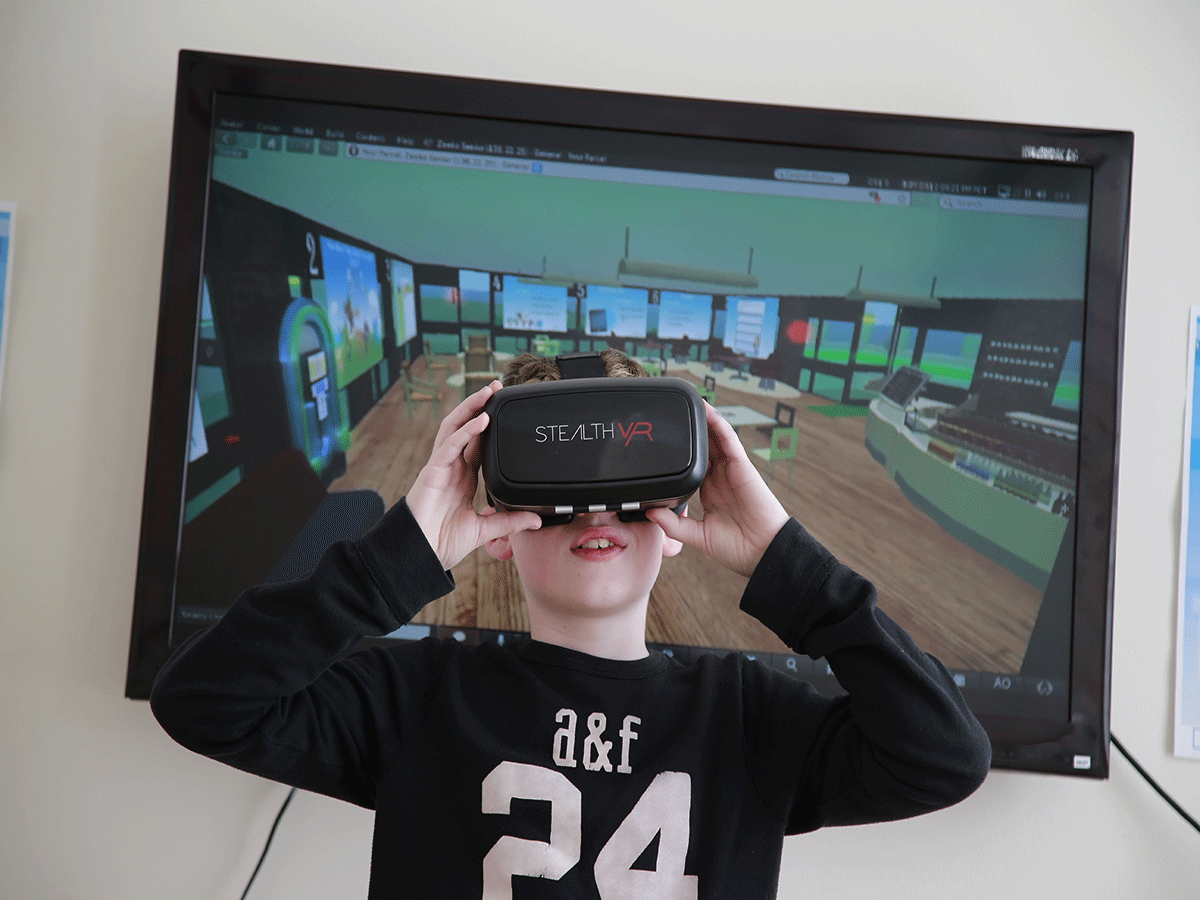NEWSLETTER
SPECIAL COVERAGE:
FALLING WALL LAB - MARIE SKŁODOWSKA-CURIE ACTIONS
INTERVIEW WITH BRIAN CAHILL, MCAA CHAIR AND JUDGE AT THE FALLING WALL LAB - MSCA
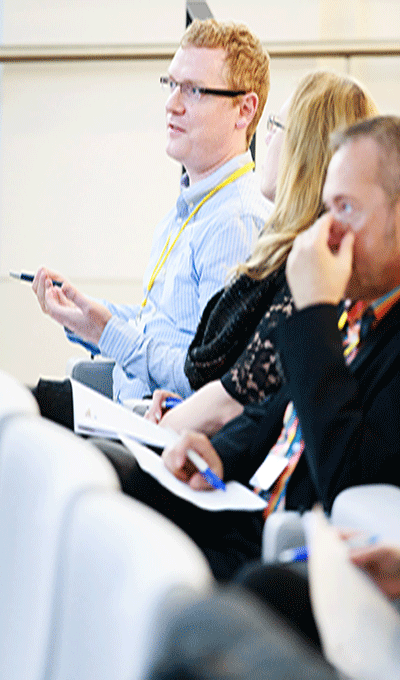
We caught up with MCAA Chair Brian Cahill to see what he thought of the Falling Wall Lab, and to hear his recommendations for future events.
How challenging was being a judge at the Falling Walls Lab?
The main point of Falling Walls Lab is to break down the walls between academic research and the rest of the world. The speakers needed to show the societal relevance of their research – that is central question to the development of a business idea, but not always in academic research. Academic researchers are not always comfortable presenting their work in this way.
In your opinion, what did the lucky winners have that other participants didn’t?
I think the winners were the participants who best showed how their research could achieve impact in the real world. Fabien Wagner showed a video of how the technology he developed could help someone with a spinal cord injury to walk again: within a few seconds you can see how that improves a real person’s quality of life.
What would you advise for future events?
I would recommend that the organisers prepare for the event longer in advance and give more time to the speakers to prepare suitable presentations. The speakers need to prepare a pitch that is quite different to their usual ‘academic’ presentations. It must be more accessible to an audience of ordinary people, shorter and much more direct. Falling Walls Lab is much more like the pitching of a business idea to a potential investor.
SPECIAL COVERAGE:
FALLING WALL LAB - MARIE SKŁODOWSKA-CURIE ACTIONS
INTERVIEW WITH FABIEN WAGNER, 1ST PRIZE
Fabien is the lucky winner of the first prize – Breaking the Wall of Paralysis with Neurotechnologies.
Congratulations on your first prize in the Falling Wall Lab contest! Tell us about your winning project.
I am working on novel approaches to stimulating the spinal cord in real- time to enable patients with paraplegia to walk. After spinal cord injury the neuronal connections between the brain and the spinal cord become interrupted, but the part of the spinal cord controlling leg movements is usually spared and located below the level of the injury. It can be activated artificially by electrical stimulation applied directly to the spinal cord. Our group, led by Prof. Courtine at the Swiss Federal Institute of Technology in Lausanne (EPFL), is conducting a clinical study to test the effects of this approach in a small cohort of patients. One of my goals is the development of technologies that will enable our patients to use this stimulation paradigm outside the laboratory environment.
Do you think this prize will broaden your horizons? How?
First of all, I would like to say that I am deeply honoured to have received the first prize from the European Commission and the Falling Walls Foundation. Simply meeting all the other Fellows who have received prestigious MSCA Fellowships and been selected to participate was a great experience. The contest and prize were also an opportunity to get in touch with the people who steer science in Europe by selecting the recipients of these fellowships and grants. They made me aware of the opportunities available for someone in my position in terms of future grant applications once my current fellowship finishes. Finally, being selected to attend the Falling Walls Lab finale in Berlin was also an immense opportunity; I was able to meet people from different disciplines and envision possible interdisciplinary interactions.
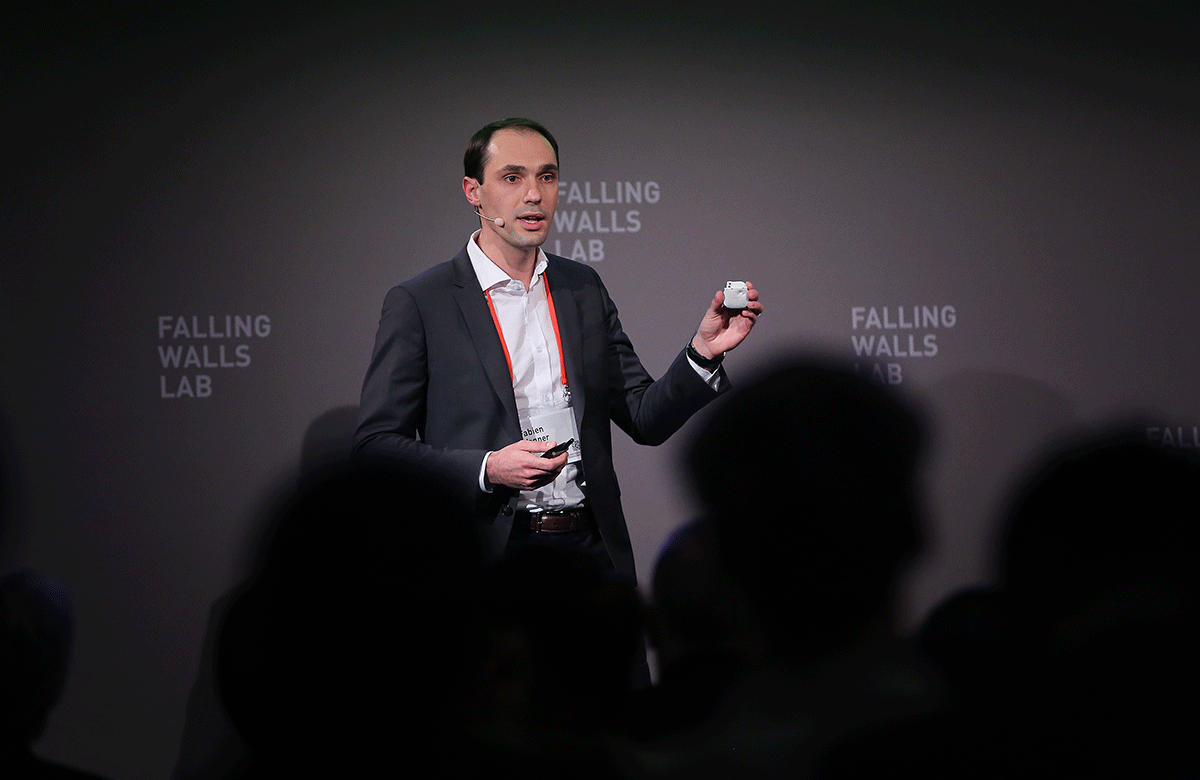
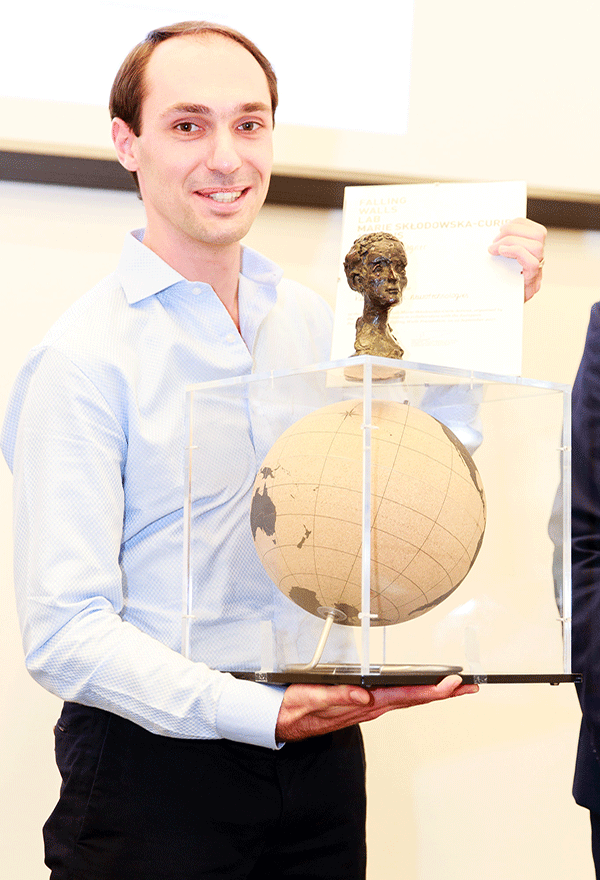
How important are such contests in the life of a researcher?
Researchers have a duty to present their work to the international scientific community. However, most presentations are open only to scientific experts in one particular field. This kind of contest gives the opportunity to present to and interact with people from many different fields. They are also great training for science communication, which is becoming increasingly important, not just for career purposes but also for keeping people aware of the importance of science, its challenges and limitations. It is important not to create a gap between the scientific community and the rest of the population.
You were invited to go to Berlin for the final, how did it go?
The Falling Walls conference in Berlin was a contest between all 100 finalists, followed by one day of presentations by established scientists at the top of their field. The young researchers selected for the finale were both brilliant scientists and very good communicators: it was a great experience to see everyone presenting their ideas in three minutes. Although I did not win one of the top three prizes, I enjoyed presenting my research and I broadened my horizons by seeing what other people are working on, sometimes in very different fields. The second day, with 15-minute presentations by top scientists in several different fields, was even more inspiring and an example for all the young researchers present.
Do you have any advice for researchers considering entering this contest?
I would advise researchers to apply at the right time in their research project: the jury needs to see a proof-of-concept that the project is more than an idea and has true potential. They also need to make sure that their personal role in the project is clearly defined and easy to explain. Finally, they should make sure they have a convincing and simple way to tell the story: this is both about science AND communication. In my opinion, it is also very important to practise a lot in front of several people. For this purpose, the coaching sessions organised by the European Commission / Falling Walls foundation was extremely useful: don't miss them!
SPECIAL COVERAGE:
FALLING WALL LAB - MARIE SKŁODOWSKA-CURIE ACTIONS
INTERVIEW WITH MURAD TAYEBJEE, AUDIENCE PRIZE
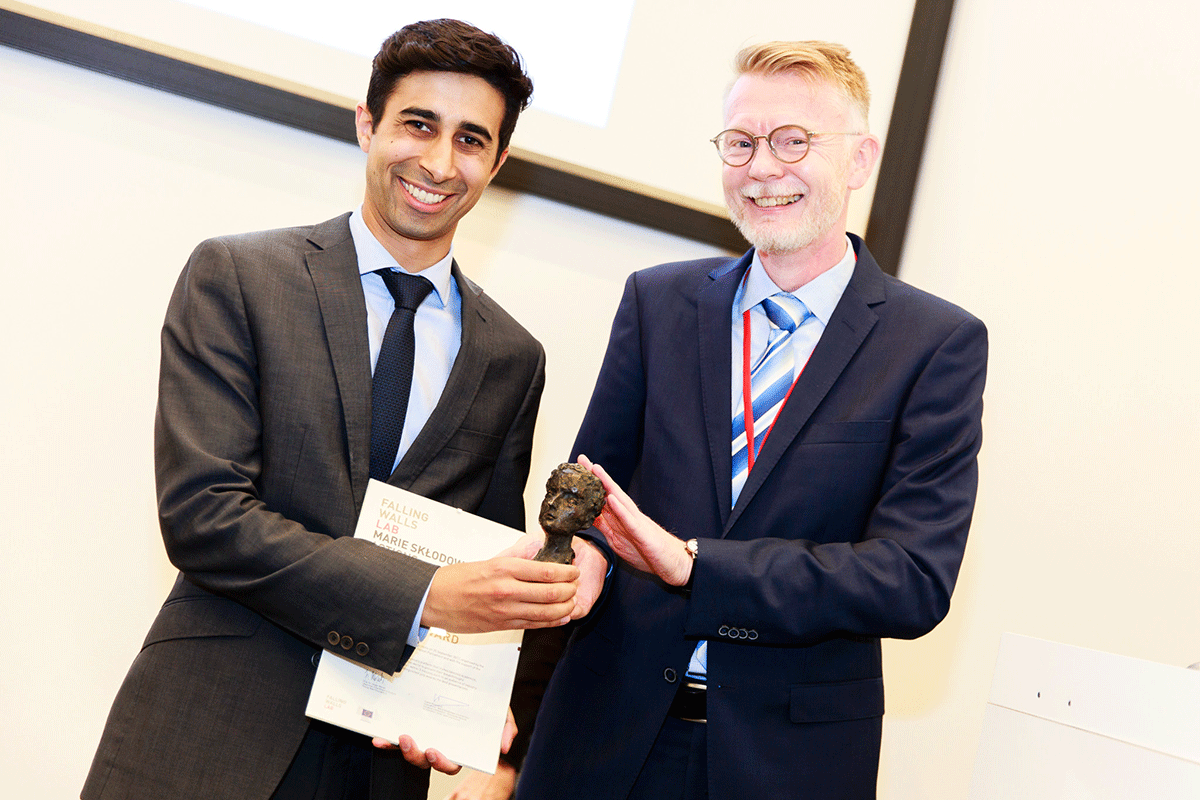
Murad was awarded the Audience prize - Breaking the Wall for the Dirty Energy.
Murad, congratulations on winning Falling wall lab audience prize! Could you tell us about your project?
My work is focused on engineering the solar spectrum to better match solar cell technologies. The solar spectrum is made up of all the colours of the rainbow, but conventional solar cells are designed to harvest one colour of light efficiently. Our solution is to change the colour of the sun. At least the colour that a solar cell ‘sees’.
Do you think winning this prize will broaden your horizons? How?
Yes. The Marie Sklodowska Curie Fellowship has offered me great opportunities like this. It was incredible to meet so many inspiring people working to improve the world in fields ranging from biotechnology to teaching to car safety. I have made contacts that I plan to stay in touch with.
How important are such contests in the life of a researcher?
This event helped me develop as a science communicator. Obviously this is important in academic environments. However, effective communication to the broader community is also extremely important in a global climate where facts and opinions are often given equal importance. The training provided by the European Commission was brilliant: I was given effective and simple advice to improve my presentation style.
What would you advise any researchers considering entering this contest?
Give it a go! If for no other reason than it refocuses you onto the larger goal of your research. It is very easy to concentrate on the details of research – and this is important – but it is also nice to remember why you embarked on your research in the first place.
SPECIAL COVERAGE:
EUROPEAN YOUNG RESEARCHERS’ AWARD
INTERVIEW WITH ALEJANDRA CONSEJO
Congratulations to Alejandra Consejo for her project, which looks into the surface of the eye and investigates how this changes under certain conditions.
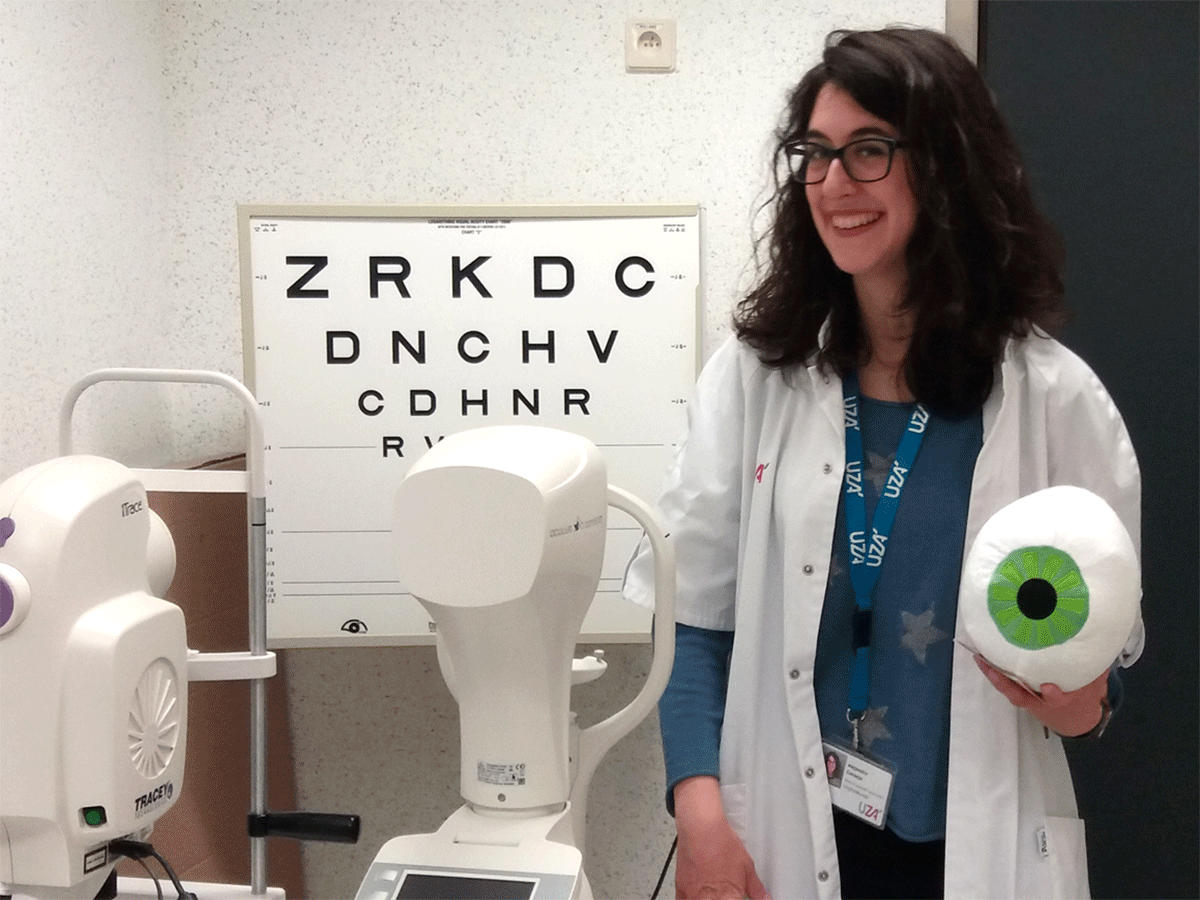
Alejandra, congratulations on winning the European Young Researchers’ Award 2017. Tell us about your winning project.
Thank you! I was awarded a Marie Skłodowska-Curie Early Stage Researcher scholarship to carry out my PhD at Wroclaw University of Science and Technology (Poland), within a European network. The aim was to study how the human eye changes with age.
Using a very specific technology and novel measuring devices I was able study the anterior eye map as a whole. My work has a strong mathematical and computational component (design of algorithms to automise routine processes, three-dimensional modelling and parameter estimation) as well as clinical fundaments and relevance. My most important research achievement to date is proving that the surface of the eyes significantly varies from one person to another, which has important consequences for everyday activities, such as reading or wearing contact lenses; but it might also be important if certain ocular procedures are being considered.
How important is the European dimension in research?
I would say that it is fundamental. In my personal experience, crossing borders between physics and mathematics, and biology and physiology, was only possible thanks to continuous collaboration with diverse experts (physicists, engineers, optometrists and medical doctors) all around Europe. Team work and continued collaboration is a key to success.
What does ESOF mean to you [Alejandra will receive her award at ESOF 2018]? Have you been able to attend previous events?
This will be my first time at ESOF and I’m very excited about it. ESOF to me is an opportunity to network and to expand my horizons in other scientific fields or disciplines that I’m not that familiar with. I’m expecting a large knowledge-sharing event. I‘m sure I will come away with new ideas, advice and valuable experiences, while I expect to share my own experience and expertise with others. I’d love to make contacts and discuss not only pure science but also about soft skills, career development, business innovation and so on.
What would you advise others planning to apply for the European Young Researchers’ Award?
Would strongly advice them to apply. It might sound like silly advice, but I think we sometimes miss good opportunities (like this one!) because we consider that we might not be good enough and we tend to think, ‘why would I bother if I’m not going to get it?’ Well, if you don’t try you definitely won’t! Besides, if you don’t get it, the work put into it and the experience gained are likely to be useful for future applications. Trial and error is as fundamental to developing science as it is to growing a researcher.
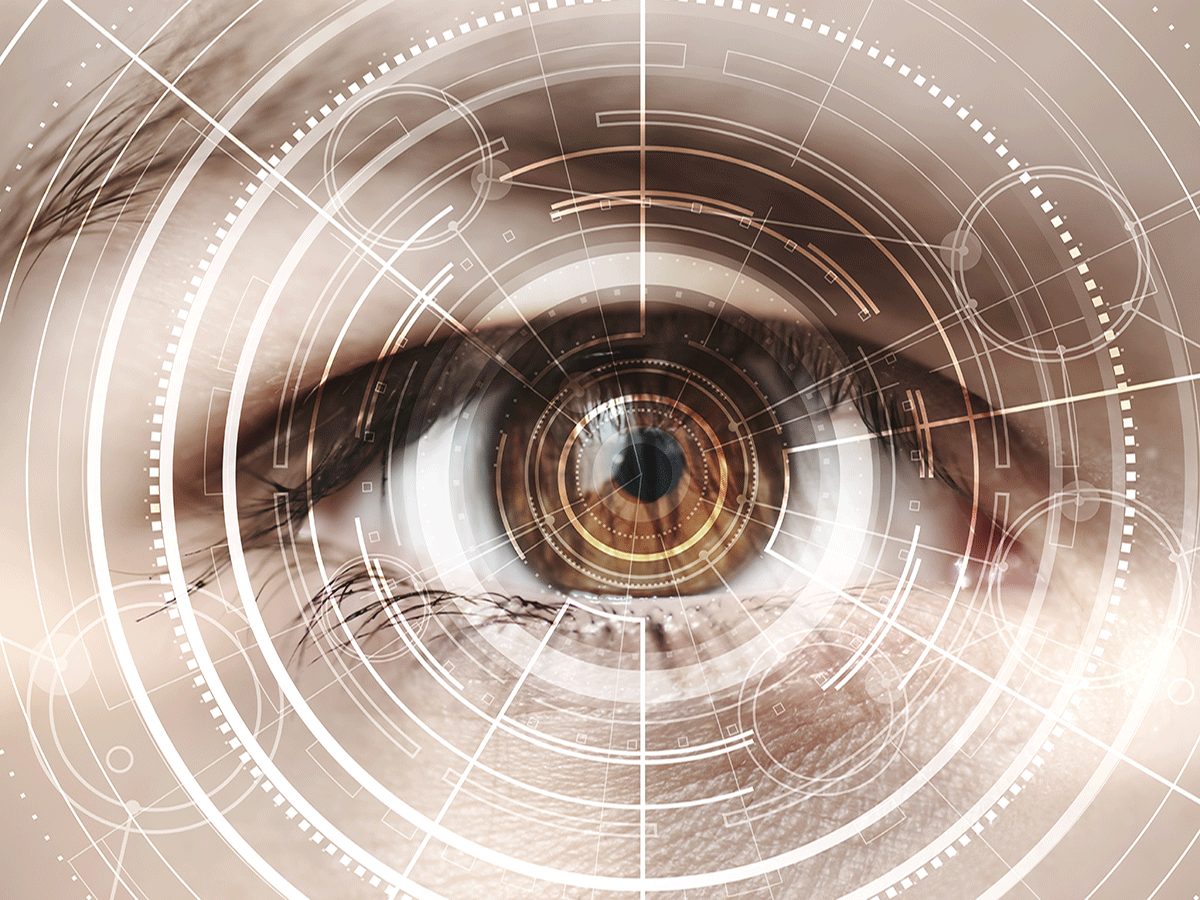
SPECIAL COVERAGE:
EUROPEAN YOUNG RESEARCHERS’ AWARD
INTERVIEW WITH PAVLO BAZILINSKYY
The judges were impressed by Pavlo Bazilinkskyy’s project on the automation of traffic and improved road safety.
Pavlo, you will receive the European Young Researchers’ Award 2017. Congratulations! Please tell us about your project?
Thank you! It’s a great honour to accept this award. I am now a final-year PhD student at TU Delft. The focus of my project is solving human factor challenges in highly automated driving. Improving road safety by means of automating traffic is a challenge worldwide. It has the potential to save millions of lives; and this is exactly the reason why I wanted to be involved in this industry. Within the project I cooperate with Volvo Trucks, Toyota Europe, and Continental.
How important is the European dimension to your research?
Very important. I have experienced education systems in five countries. I was born and studied in Ukraine. I obtained a BEng degree from Mikkeli University of Applied Sciences (Finland). Then I concluded a Erasmus Mundus Double MSc at the University of St Andrews (Scotland) and Maynooth University (Ireland). Now, as an ITN fellow in the Netherlands, for me there is no way around cooperating with companies and universities across Europe. A few months ago I came back from Sweden, where I led an on-road study with Volvo Trucks. Now I am preparing for my last secondment.
What does ESOF mean to you [Pavlo will receive his award at ESOF 2018]? Were you able to attend previous events?
I have not attended any previous events. But I have heard great things about this forum. The quality of the event is really high and I am excited about being a part of ESOF 2018. I have submitted a proposal for a Science to Business session during ESOF 2018 and, together with the Bridging Science and Business working group we hope to actively contribute to the event.
You’ll receive your award in Toulouse in July 2018. What are you expecting from the event?
I am expecting great sessions, amazing people, and lots of sun!
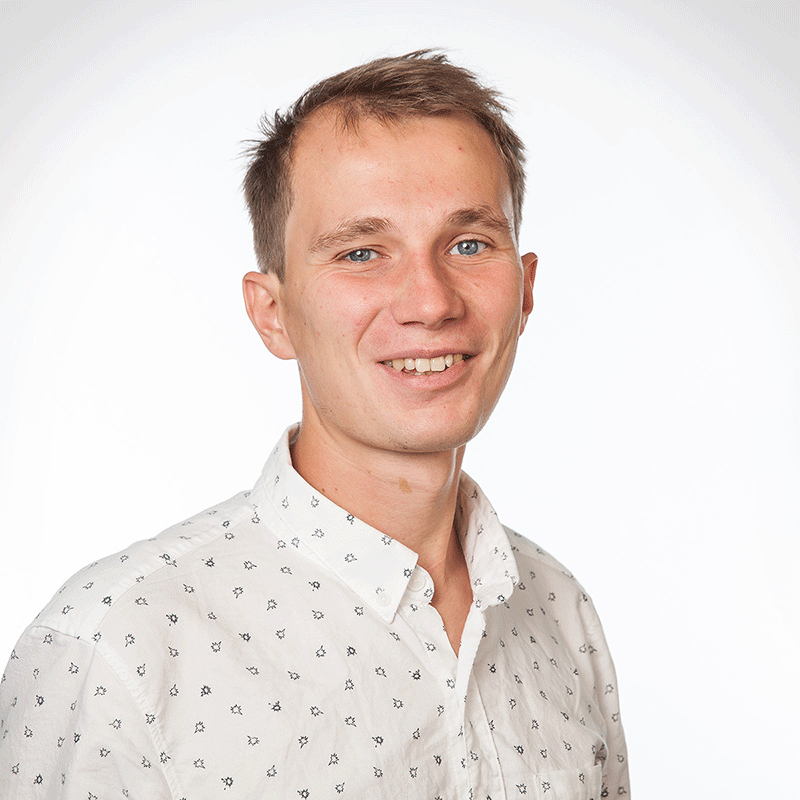
What would you advise anyone who is considering applying for the European Young Researchers Award?
Engage in activities outside your study or office hours. Volunteering after lectures or doing sports – that’s how I met some of the most fascinating people. They helped me to take part in great projects and meet other active and motivated people. Find something that you love and work hard on it. But be careful, time flies when you are passionate about what you do.
RESEARCH
HOW DOES ICT AFFECT CHILDREN- PARENT RELATIONSHIPS?
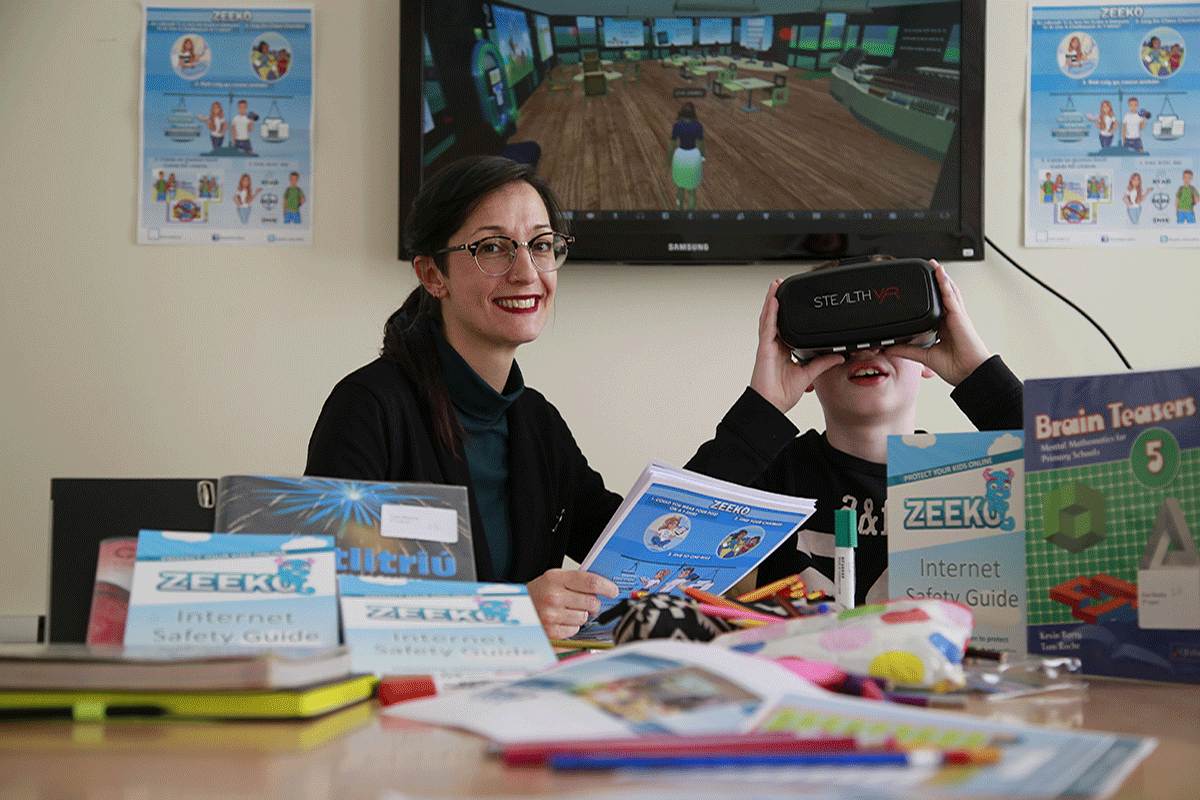
Marina Everri was recently awarded a Horizon 2020 SME Innovation Associate grant. She is investigating the impact of information and communication technologies (ICT) on education and children-parent relationships while working as a family therapist. Intrigued by the topic we met her to find out more.
Tell us a few words about yourself?
My name is Marina Everri and I am an Italian social scientist. I was trained as a psychologist at the University of Parma, Italy. As a young student I was imbued with the myth of psychoanalysis. I was fascinated by Freud’s great insights and I remember I used to think that I really wanted to become a psychotherapist. As soon as I started studying psychology I realised how contemporary psychology, or at least most of the psychology taught in today’s higher education institutions, had little to do with psychoanalysis. In my second year, I encountered social psychology, which made me realise that we, as individuals, do not live in a void and that ‘the social’ actually contributes to shaping psychological processes. I became more and more interested in the study of communication and interpersonal relations (a topic of social psychology), especially when I attended a course on the psychology of family relations taught by Professor Laura Fruggeri (now my mentor). Studying that subject I came to realise that families are micro-social systems that provide care and protection. In fact, they are the ‘cradle’ of our first interactions. However, families can also become a source of suffering and emotional discomfort.
What is your current research focus?
I am particularly interested in the study of social relations and communication processes within families, especially when children enter adolescence. I think I am particularly fascinated by theory and method development (e.g. systems and ecological theories), which consider families as dynamic systems involved in a continuous exchange with external contexts. Similarly, I am interested in children and their development. In my view, we cannot separate the individual from the social. These interests have led to me conducting research across different disciplines, such as sociology, developmental and social psychology as well as anthropology. I have also collaborated with colleagues from different backgrounds in both the USA and Europe. I find that transdisciplinary research should be at the core of any research concerning complex study subjects, such as families.
You’ve been awarded an MSCA for a project on the role of digital media in child development, parenting and family communication. Please tell us more.
Well, the project built upon observations I had made in families with adolescents. I was conducting interviews with families and their adolescent children to study parenting in adolescence and families were reporting how a ‘new thing called Facebook’ was a cause of conflict. This was a recurrent topic in Italian families and made me realise that I could not ignore the role of ICTs.
The project’s core goal was to provide new knowledge on how ICTs are changing interpersonal relations within families, as well as operational advice for parents, children and practitioners with respect to ICT use. In fact, both scientific research and public opinion tend to either be enthusiastic and supportive, or pessimistic and condemning of the harm and risks linked to ICT. More empirical evidence was needed to overcome such dichotomies. This project not only provided new knowledge at the methodological level, testing SEBE (never used before with families and adolescents) as a procedure to collect data, but also allowing adolescents to become more aware of the use of ICTs. But the project also led to new findings that could inform future research and interventions in this field. Specifically:
- adolescents privilege the use of smartphones to accomplish everyday tasks ranging from entertainment to school duties;
- adolescents show ‘bittersweet’ emotions (mixed positive and negative) or emotional problems, especially anxiety, regarding the ‘full-time connection’ afforded by their smartphones;
- a small number of adolescents were able to develop coping strategies, thereby showing resilient behaviour as well as positive emotions in relation to smartphone usage;
- adolescents’ individual characteristics (skills and self-efficacy), family relational dynamics (quality of family communication and level of parental monitoring), and allocation/affordability of digital technologies in the household had an impact on the domestication of smartphones, i.e. their harmonious appropriation and integration in everyday tasks and routines (e.g. homework).
How would you describe your Marie Curie experience?
I think I would describe it using three words: unique, challenging, inspiring!
You were recently nominated a Horizon 2020 SME Innovation Associate. Could you tell us about the project and your role?
This is a pilot call launched this year by the European Commission, which aims at building a partnership between ‘talented researchers’ and small enterprises that will help the latter to develop innovative ideas. Every two months, researchers can attend seminars on how they can use their research expertise to help the enterprises innovate.
I decided to apply for this position as I thought it would represent the productive evolution of my MSC project. I liked the idea of having the option to transfer my research results to something that could have a ‘real impact’ on society. In addition, this call can translate into practice what higher education institutions have tried to do in the last years, namely build a stronger relationship with industry.
So I am currently working at an education technology start-up (Zeeko) based at University College Dublin, and I am in charge of investigating the side effects of virtual reality on child development and parent-child communication, while helping Zeeko to improve its content.
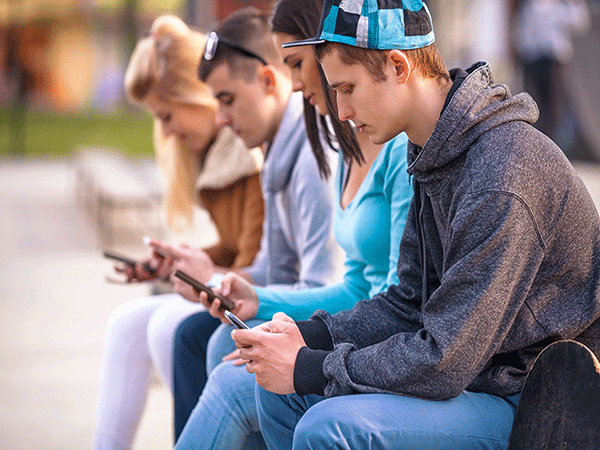
You are also a family therapist. How do you combine research and practice?
It took me a while to understand how I could become a good therapist as well as a good researcher. At the beginning, it was quite hard even though the ‘object’ of my research and intervention was the same, i.e. families. I had to develop very specific competences in both sectors. I spent four intense years following both clinical and research training, which also affected my private life. However, a process of ‘professional maturation’ made it possible to integrate both. I used to have a private psychotherapy practice in Italy to which I dedicated one day a week. Having a private practice allowed me to integrate my lessons with clinical cases; students found that particularly motivating and provided me with positive feedback. When I was awarded the MSC, I had to quit the practice in Italy, since I moved to London.
In your opinion, what are the consequences of ICT for family relations and the development of teenagers?
I think that ICTs are actually transforming the ways in which we communicate. We still do not know what will happen in the long run, but it is clear that digital devices (smartphones and tablets), besides the Internet, are ubiquitous. However, my findings showed that parents and teenagers are trying to find solutions to cope with both perpetual connection and the increasing pace of technological innovation. In addition, I could provide evidence of the fact that technologies are not good or bad per se, rather that families try to ‘domesticate’ them, namely they attribute meanings, set regulations, devise strategies that allow them to incorporate ICTs in their everyday tasks and routines. For some families, those processes can be smooth, for others they can be more complicated. Through my research, it was possible to identify good and bad practices with ICTs, as well as investigate participants’ experiences.
